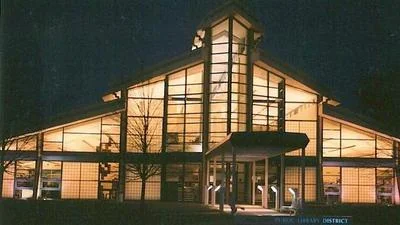Dresden Nuclear Power Station, Unit 2 issued the following announcement on Oct. 30.
Three NRC officials are among 139 career public servants selected to receive the FY 2018
Presidential Rank Award. The award is one of the highest given to government employees, and
recognizes and celebrates their sustained extraordinary accomplishments.
The NRC recipients are: Margaret M. Doane, previously the agency’s general counsel and now
its executive director for operations; Anne T. Boland, director of the Office of Enforcement; and
Thomas W. Rich, a division director in the Office of the Chief Information Officer.
“These three senior officials at the NRC have distinguished themselves through consistent and
exceptionally high performance in service to this agency and the American people,” said NRC
Chairman Kristine L. Svinicki. “I join with the entire agency as we honor them and offer our
congratulations.”
Doane joined the NRC in 1991 and has held increasingly important leadership roles. She served
as director of the NRC’s Office of International Programs and later became the agency’s general
counsel. In that role, she served as the chief legal officer for the agency and principal legal advisor to
the Chairman and the Commission on matters of law and legal policy in support of the NRC’s mission.
Additionally, she worked closely with other government agencies and the White House to advise and
represent the NRC in matters concerning international nuclear safety organizations, committees of
Congress, foreign governments and non-governmental organizations. In 2018, she was appointed EDO,
the highest career position in the NRC, and serves as the agency’s chief operating officer.
Her career accomplishments include successfully defending the Continued Storage Rule, which
allowed commercial nuclear power plant licensing and license renewal to resume; ensuring that the
legal framework existed to support the U.S. and NRC response to the Fukushima nuclear reactor
accident; and providing innovative leadership to the legal team addressing unique issues associated
with small modular reactors.
Boland joined the NRC in 1985 as a radiation specialist in the NRC’s Region II office in
Atlanta. She held progressively more responsible positions in that office and in the agency’s Region III
office, in Lisle, Ill., before moving to the NRC headquarters to serve as a division director in the Office
of Nuclear Reactor Regulation and as acting deputy office director in the Office of Regulatory
Research. Currently, as the director of the Office of Enforcement, she leads an office of highly skilled
scientists and engineers in developing and implementing policies and programs for enforcement,
allegations, and safety culture programs.
Page | 2
Her career accomplishments include exceptional leadership in overseeing safety enhancements
at an Ohio nuclear plant after significant reactor components were found degraded; superior leadership
of agency-wide efforts to address groundwater contamination issues around power plants; and the safe
resumption of certain cancer treatments at a Department of Veterans Affairs medical center after the
identification of significant performance issues.
Rich began his career with the NRC in 1986 as an engineering aide in the Co-Operative
Education Program. During his 31 years of service, he has held positions of increasing responsibility in
a broad spectrum of technical positions. He performed licensing, inspection and rulemaking activities
related to nuclear materials; and served in a number of supervisory positions, including as lead of the
Materials and Waste Applications Team and as deputy director in the Information and Records Services
Division. Currently, as division director of the Information Technology Services Development and
Operations Division, he oversees the technology service lifecycle, from design through deployment and
maintenance. He manages an annual budget of some $70 million and oversees a technical staff of
around 70.
His career accomplishments include providing exceptional leadership in developing guidance
used by the NRC and Agreement States to review and approve sealed radiation sources and devices for
licensing, serving on high-profile inspection teams, and providing critical leadership in improving the
agency’s cybersecurity posture and processes.
Original source can be found here.






 Alerts Sign-up
Alerts Sign-up